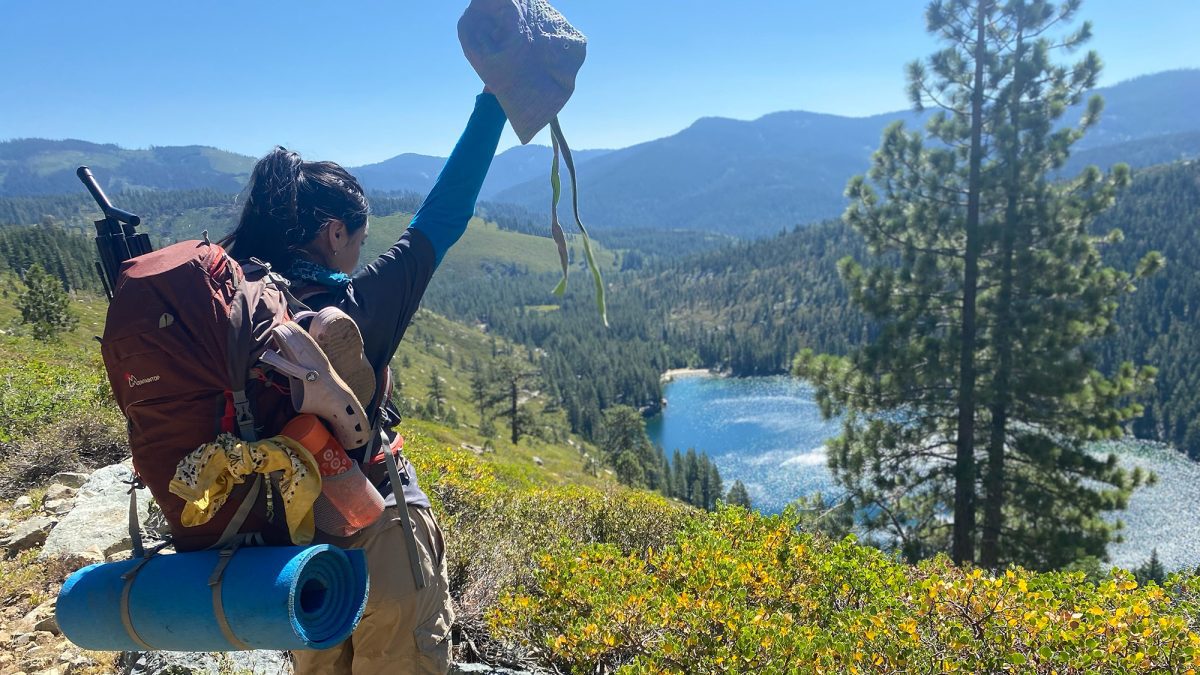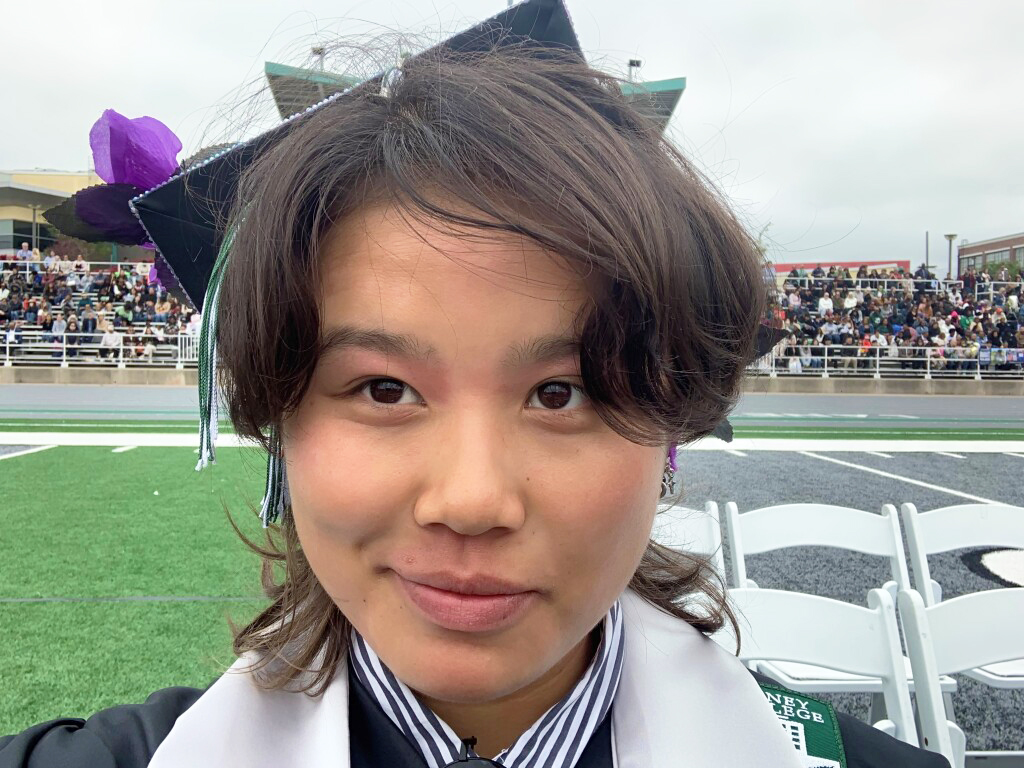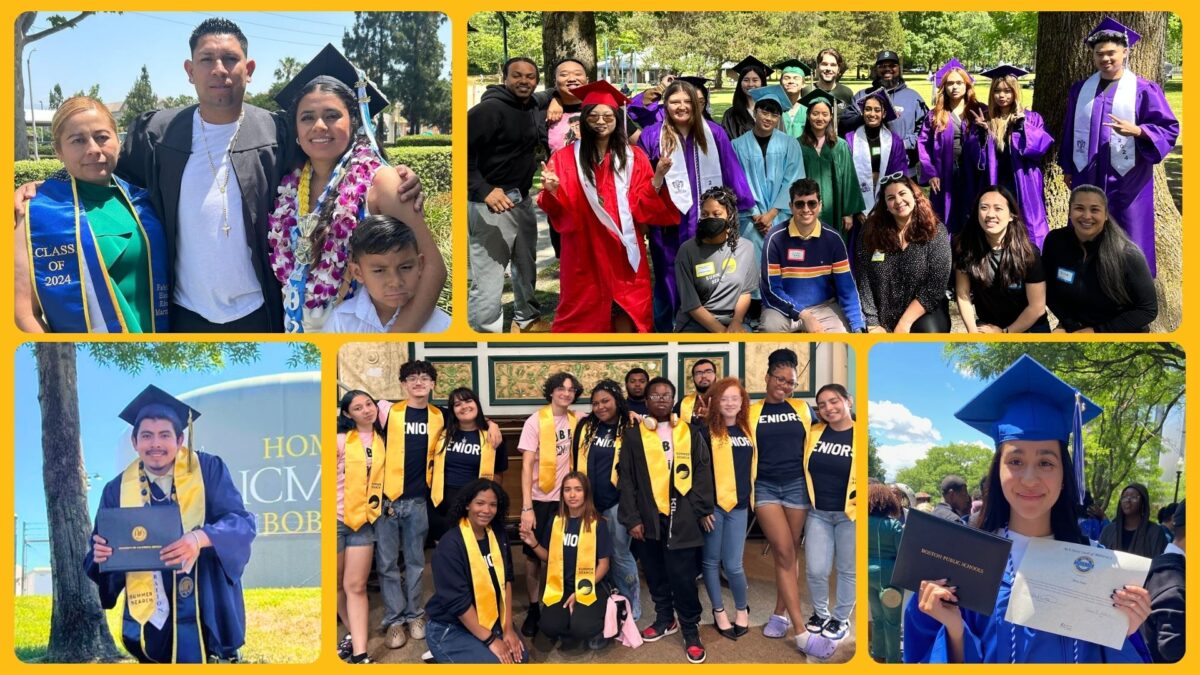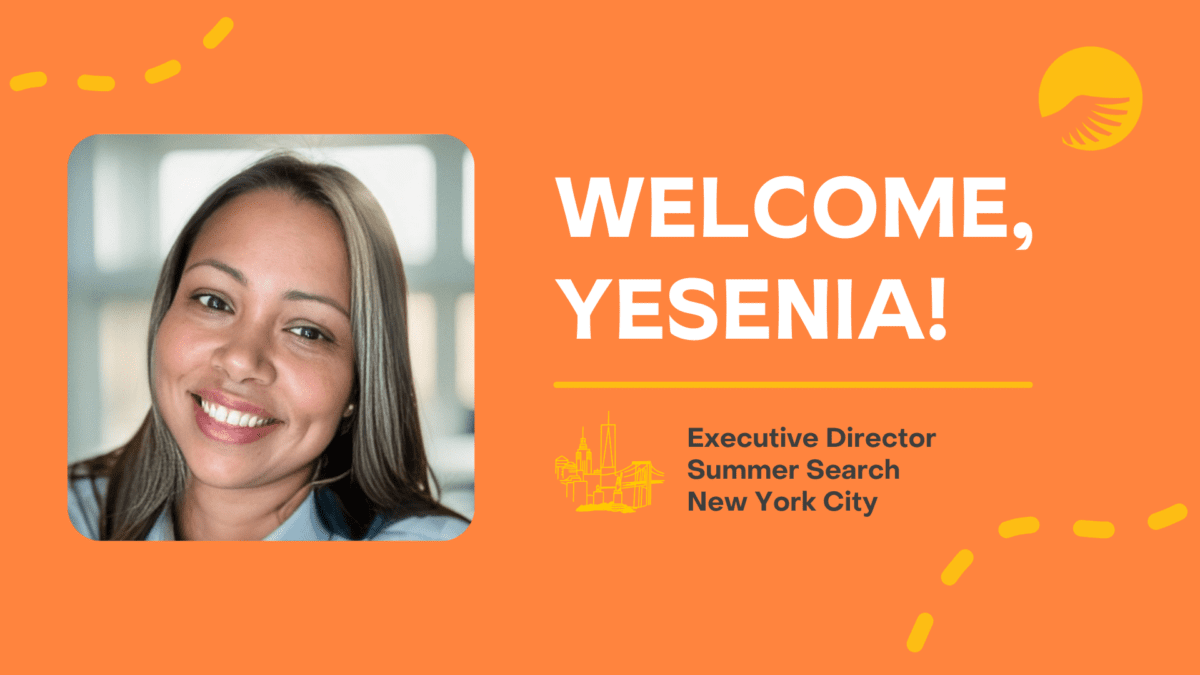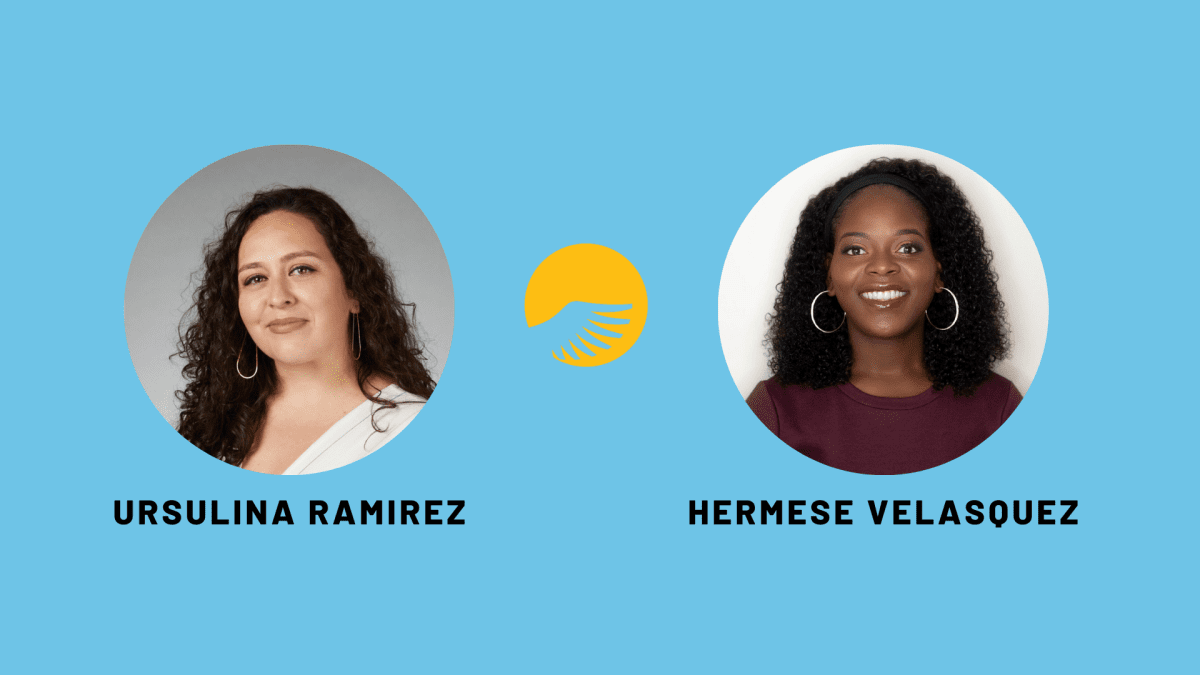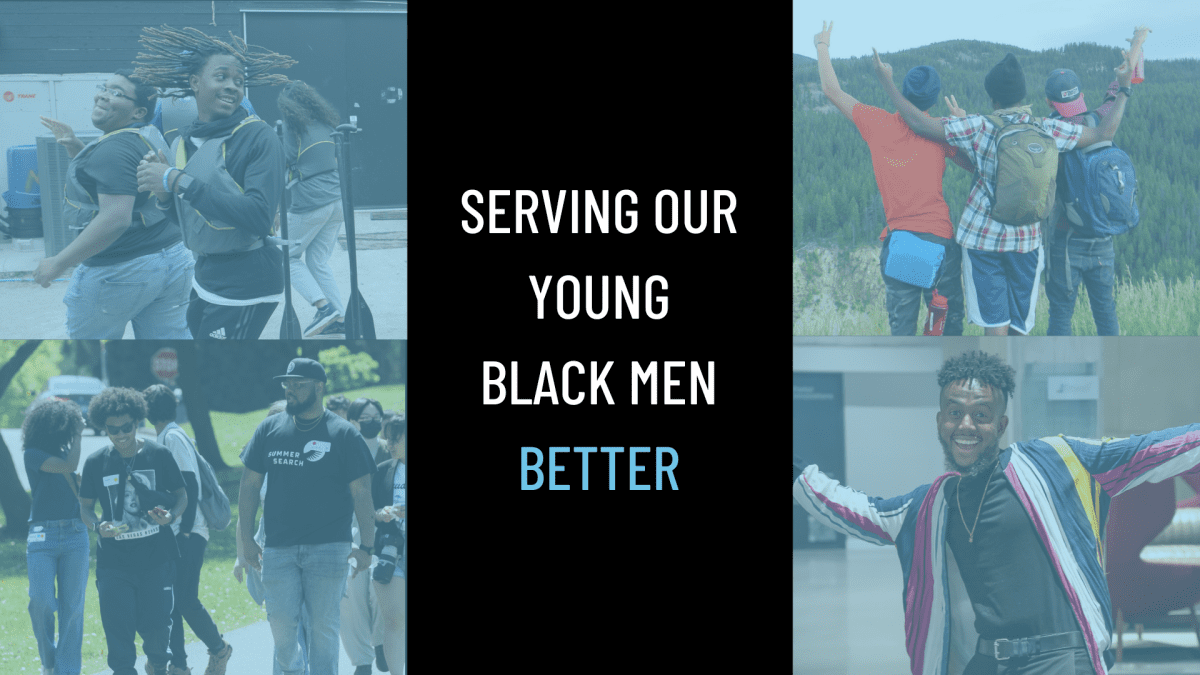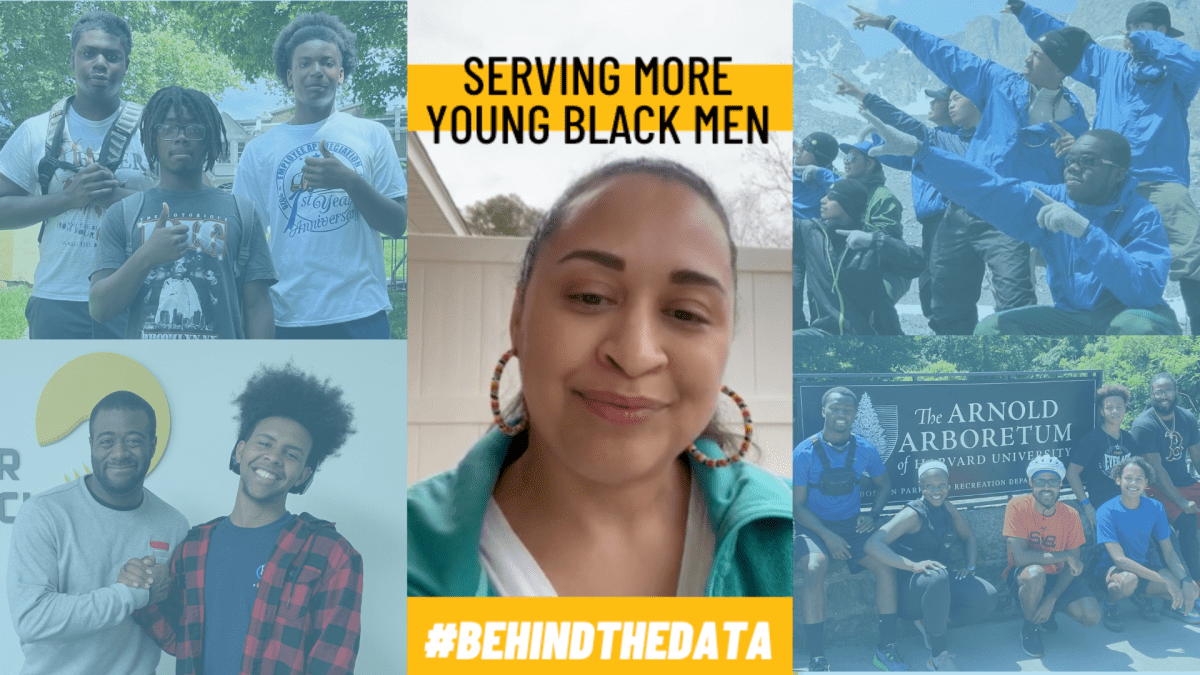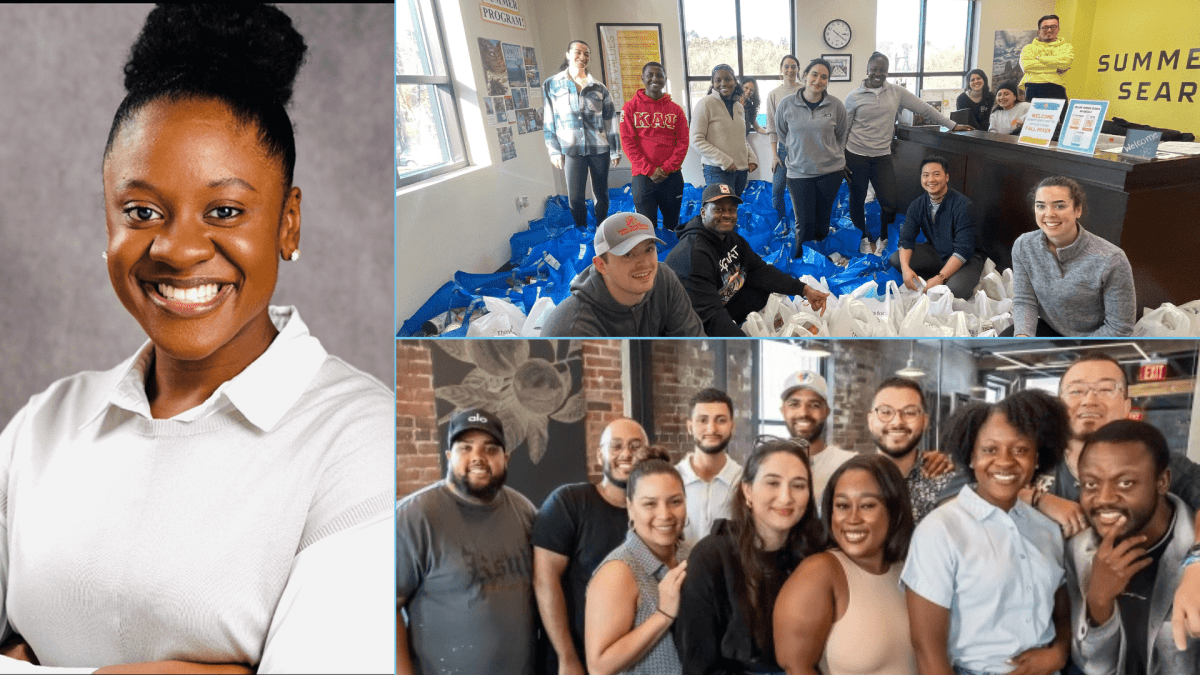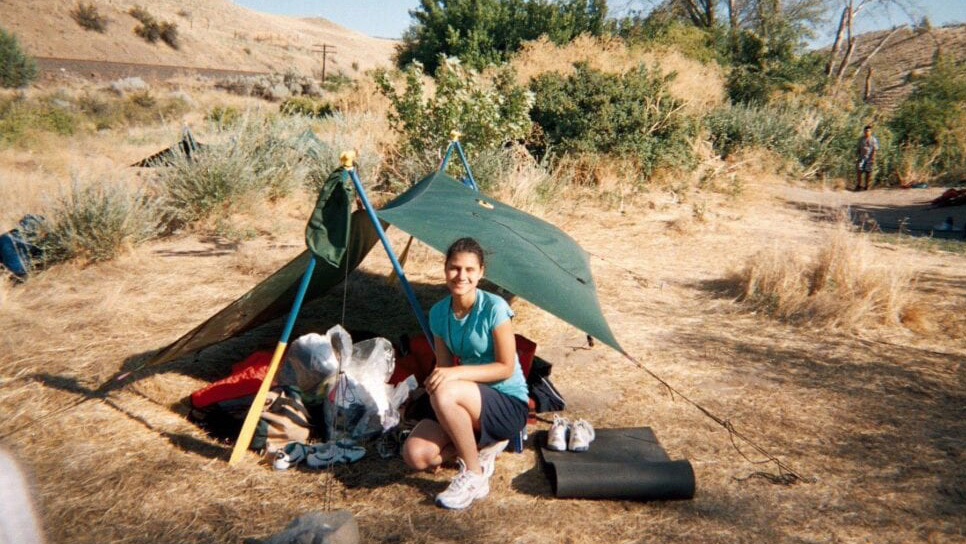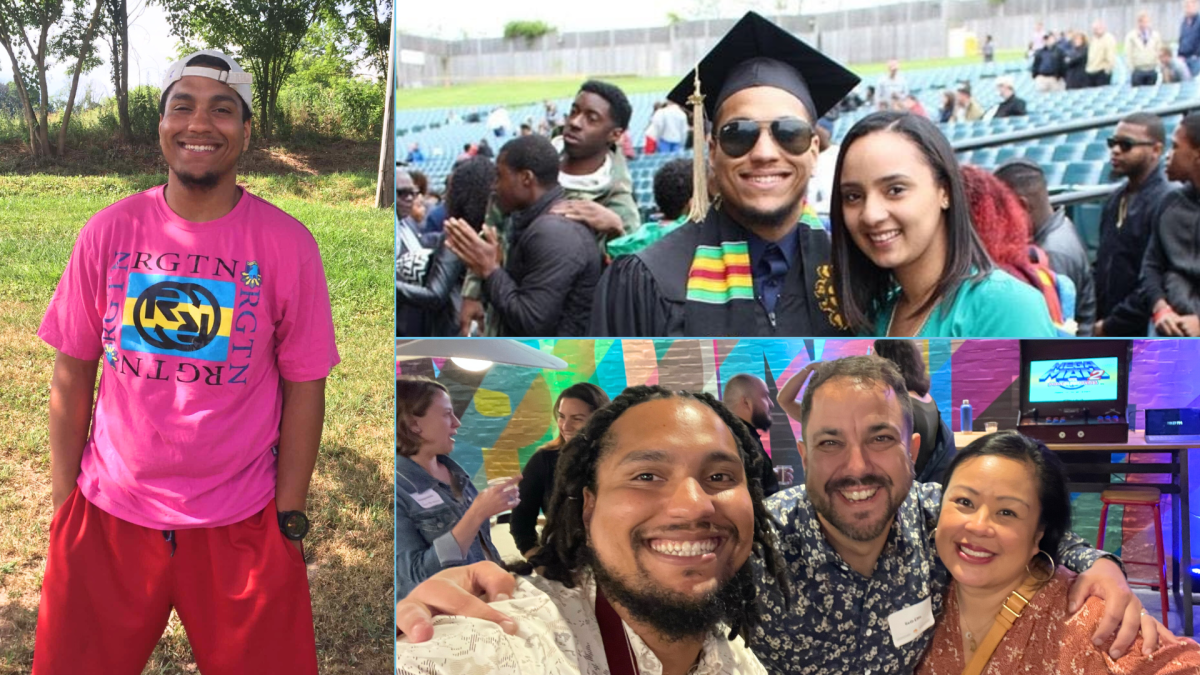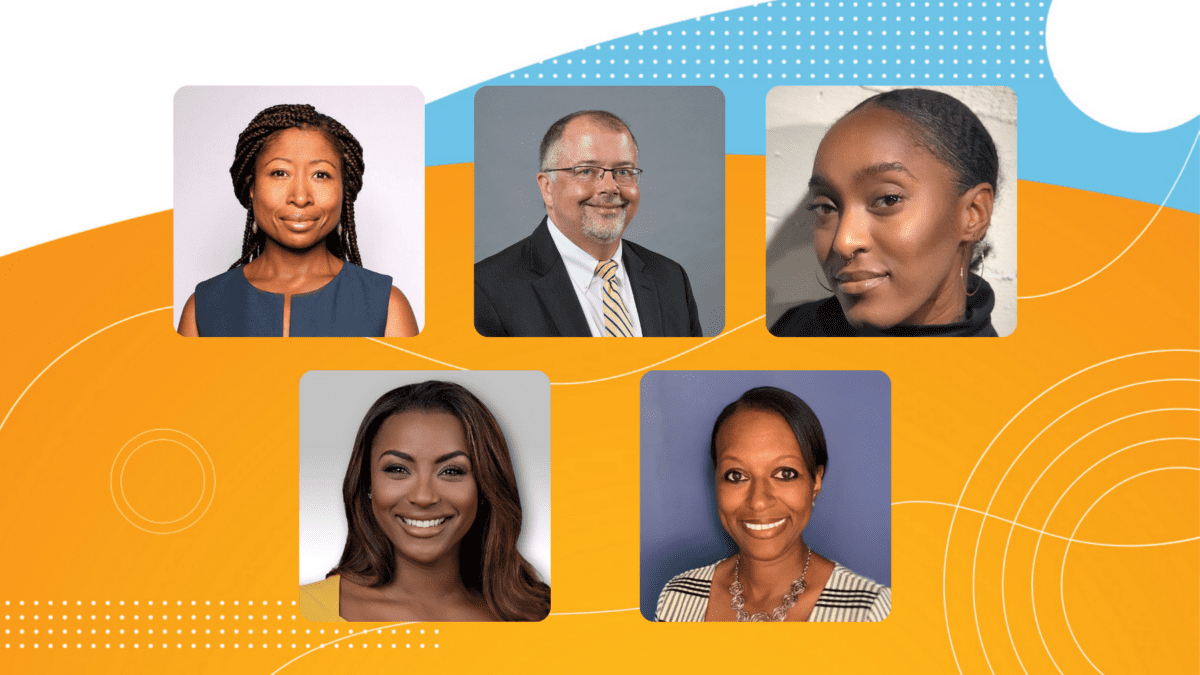
“We have an opportunity to redesign long-held systems that have failed Black and Brown people, and People of Color for centuries.” – Dr. Angela Jackson
For 31 years, Summer Search has empowered young leaders to break through systemic barriers, win economic equity, and discover their purpose. Through our Championing for Justice & Equity (CJE) series, we’re calling in our broader community to have deeper conversations on race, justice, and systemic inequity.
In March we discussed corporate America’s role in advancing racial equity, and what tools we have as individuals to achieve that equity.
This month, we dug deeper into diversity, equity, and inclusion (DEI) in the workplace with our conversation, Racially Speaking: The Future of Work.
We invite you to watch the full conversation and read the recommendations and resources below. Stay tuned for more about our next event, Closing the Education Equity Gap (September 28).
Conversation Contents
- 0:03 – 2:01: This is CJE
- 2:10 – 5:05: Introduction
- 5:06 – 19:43: Dr. Angela Jackson
- 19:44 – 37:00: H. Patrick Clancy
- 37:04 – 1:10:50: Panel Q&A
- 1:10:52 – 1:12:59: Closing
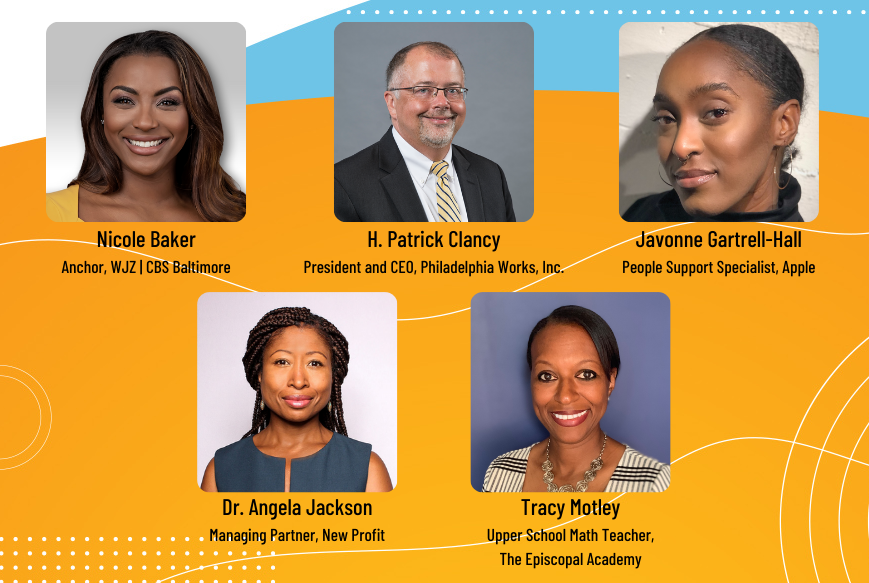
Our Guest Speakers
- Dr. Angela Jackson — Managing Partner, New Profit & Summer Search Boston Board Member. Keynote/Panelist.
- H. Patrick Clancy — President and CEO, Philadelphia Works, Inc. Keynote/Panelist.
- Javonne Gartrell-Hall — People Support Specialist, Apple. Summer Search Seattle Alumna.
- Nicole Baker — Emmy-Nominated Anchor, WJZ | CBS Baltimore. Panel Moderator.
- تریسی موتلی — Upper School Math Teacher, The Episcopal Academy. Host.
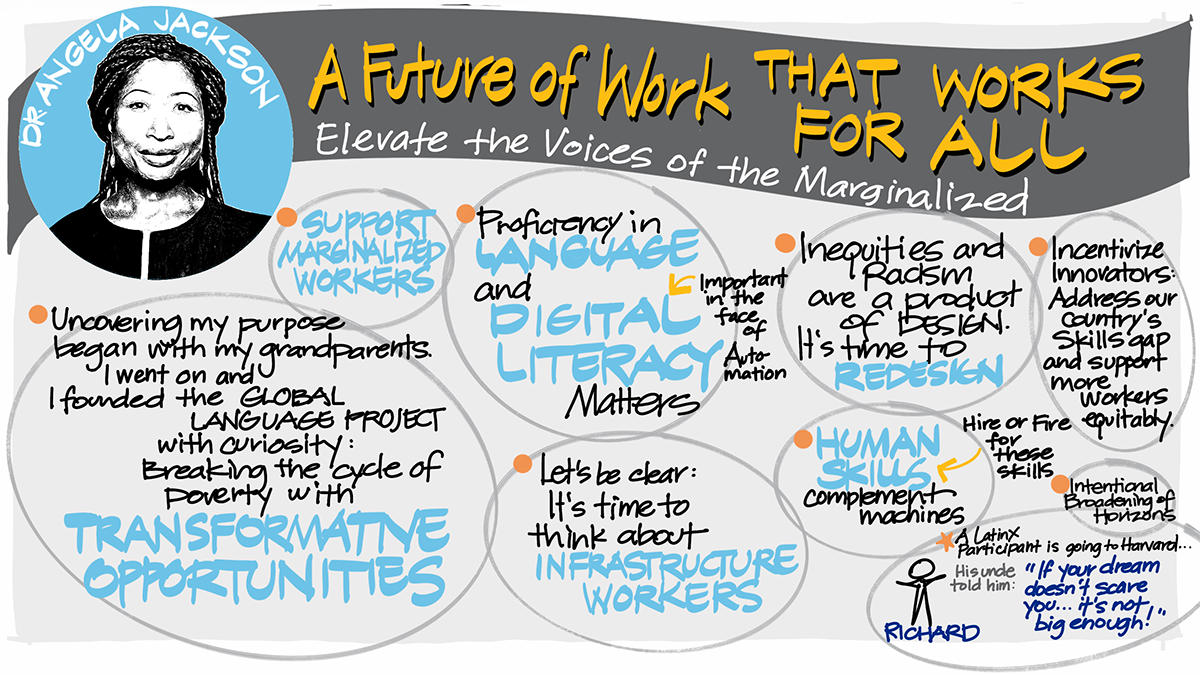
The Future of Work, That Works for All
Dr. Angela Jackson leads New Profit’s Future of Work Initiative, which seeks to close the career-readiness gap for Americans from low-income backgrounds. In her keynote remarks, she shared insights on why it’s important to create opportunities for young people to explore the world around them and build the skills needed for the future.
“It’s time for us to think about human infrastructure,” Dr. Jackson explains. “We need to answer the question of how we invest in workers who are essential to keeping our country running. We can build back better, or we can go back to business as usual.”
Jobs & Skills of the Future:
- Close to half of all jobs could be eliminated by technology within the next 20 years.
- 2 out of 3 children entering school now will work in a job that does not exist today.
- For “New Collar Jobs,” digital literacy and proficiency in another language matters.
- Emphasis on developing Soft Skills – communication, empathy, computational thinking.
“These are skills that will compliment machines,” says Dr. Jackson. “Machines are going to play a larger role in the future. Behind every one of those machines, will be a human to guide them.”
Dr. Jackson also emphasized the importance of building stronger Education-to-Employment pathways, creating more opportunities to support and engage with workers and learners from underinvested, and “underestimated” communities.
“We have an opportunity to redesign long-held systems that have failed Black and Brown people, and People of Color for centuries,” Dr. Jackson explains.
Advice for Employers:
- Provide wraparound supports for employees (transportation, health care, leave, remote work, etc.).
- Invest in the growth of your full workforce, not just the top earners.
- Practice Radical Collaboration instead of rugged individualism.
- Elevate the voices of the people who need resources/supports the most. In the long run, this will help everyone.
As Dr. Jackson puts it: “Center the voices that are traditionally marginalized. We don’t do this in the spirit of charity, but in a commitment to efficacy… We can dream, but we realize our dreams when we have a village behind us.”
Additional reading from Dr. Angela Jackson: Workforce Boards: America’s Best-Kept Future Of Work Secret
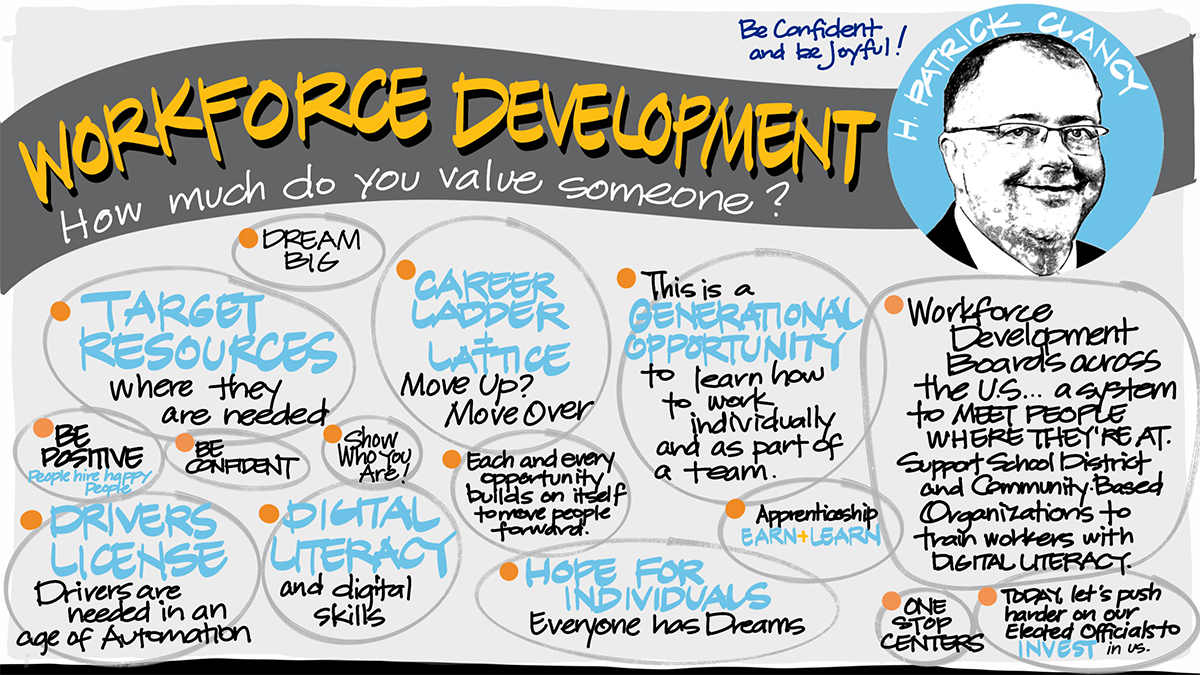
Developing The Workforce
Workforce Development Boards, located in all regions across the United States, identify the labor needs of local communities and direct public funding to programs that connect workers to training, jobs, and other resources.
H. Patrick Clancy possesses more than 20 years senior level experience developing and managing Career and Workforce Development programs. As President and CEO of Philadelphia Works, the city’s Workforce Development Board, he directs all aspects of the organization, providing strategic guidance for investments in solutions and services to grow Philadelphia’s economy.
Video courtesy of the National Association of Workforce Boards.
“More than ever, this is the time to engage in a public system to make sure that it is developing young people and people in transition,” Mr. Clancy explains. “What we do is really try to meet people where they’re at.”
He emphasized that something as basic as internet access (and the ability to work and learn remotely) is going to be crucial in the coming economy. “If we truly believe in equity, then we would make sure that everyone has equal access to resources and equal access to employment and training programs.”
Advice for Workers:
- Digital Literacy: in the age of automation, machine repair and programming skills will be needed.
- Learn to work both independently and part of a team.
- Practice Lifelong Learning – keep building your skills and learning new ones.
- Look for companies with a Career Ladder and/or Lattice – do they have opportunities to advance, grow, and move? Will the company continue to invest in me?
- Find your local workforce development board – they can provide lots of resources, from resume support to access to trainings.
- Confidence is key. “We are all individual entrepreneurs.”
Mr. Clancy also shared a key perspective for job-seekers, that each job/opportunity you take builds on itself to move you forward, like stepping stones. “I started out at McDonald’s cooking, and now I’m a president and CEO.”
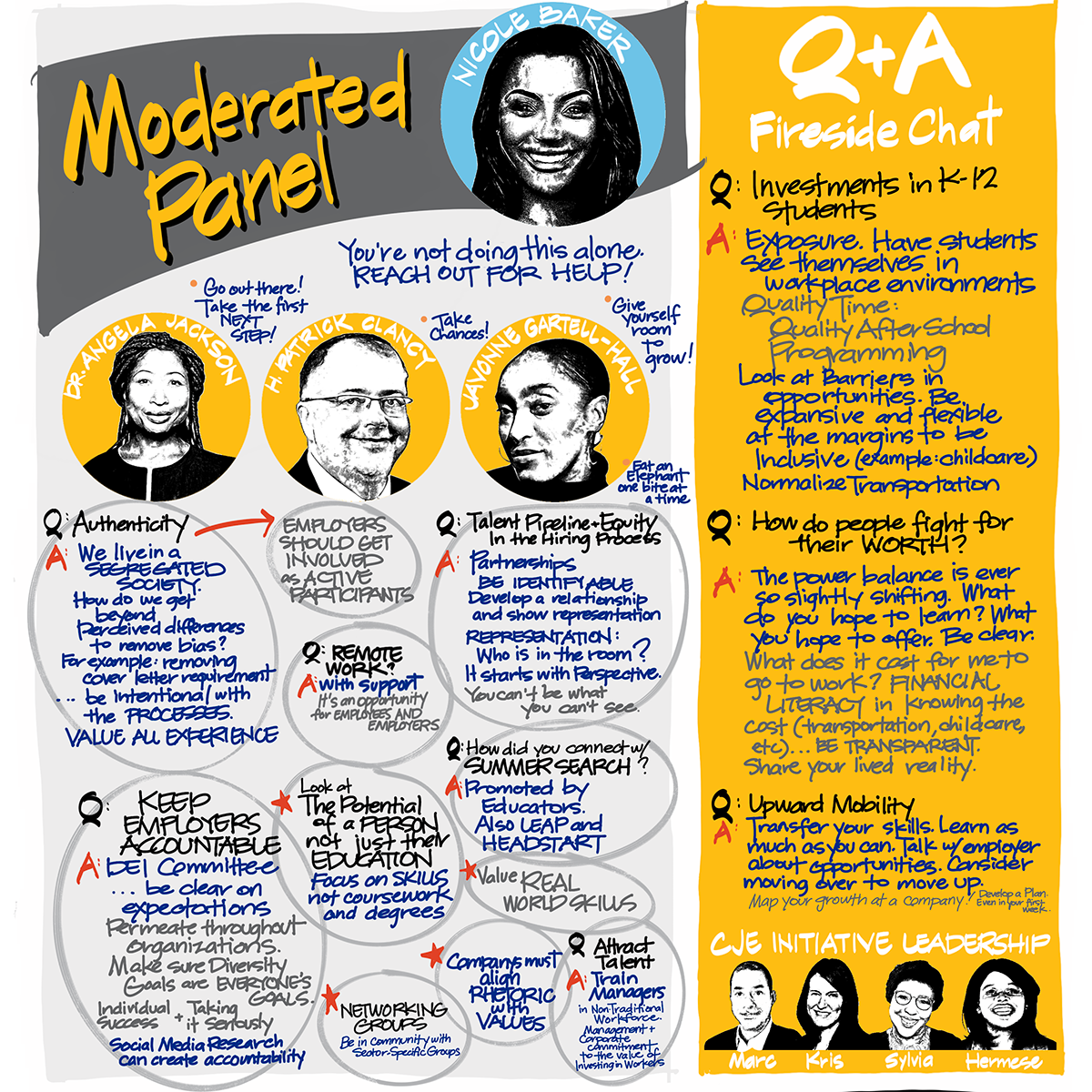
Panel Q&A Breakdown
For our panel discussion, Dr. Jackson and Mr. Clancy were joined by Javonne Gartrell-Hall – a Summer Search alumna with HR/Talent experience, currently working at Apple – and Nicole Baker – Emmy-Nominated anchor with WJZ | CBS Baltimore. Below are a few of the key takeaways from that portion of conversation.
- Companies must develop relationships with their people and their communities (through schools, community organizations, and more).
- Representation matters, especially in the hiring process. As Javonne reflects: “Who is in the room? What perspectives are there when you’re developing these different approaches? Hiring processes can be really biased based on the experience and perspectives of the person(s) who develop them.”
- Value lived experiences/real world skills the same way you look at work experience. Look at the potential of the person, not just education. As Dr. Jackson suggests, consider getting rid of traditional cover letters: “We set out to do away with the cover letter. Instead, we ask three standard questions that we’d ask every single applicant.”
- Make DEI work everyone’s responsibility. Make it part of staff goals/evaluations.
- Remote work, properly supported, can be mutually beneficial for workers and companies.
- Examine the barriers in your jobs/opportunities. Be expansive, flexible, and inclusive when considering support for childcare, transportation, etc.
- You’re not doing this alone. Whether you’re an employer or employee, there are lots of places to get support.
Achieving racial equity in the workplace will take time, but as long as companies and organizations are putting in the work, Summer Search will be running alongside them through our CJE series.


